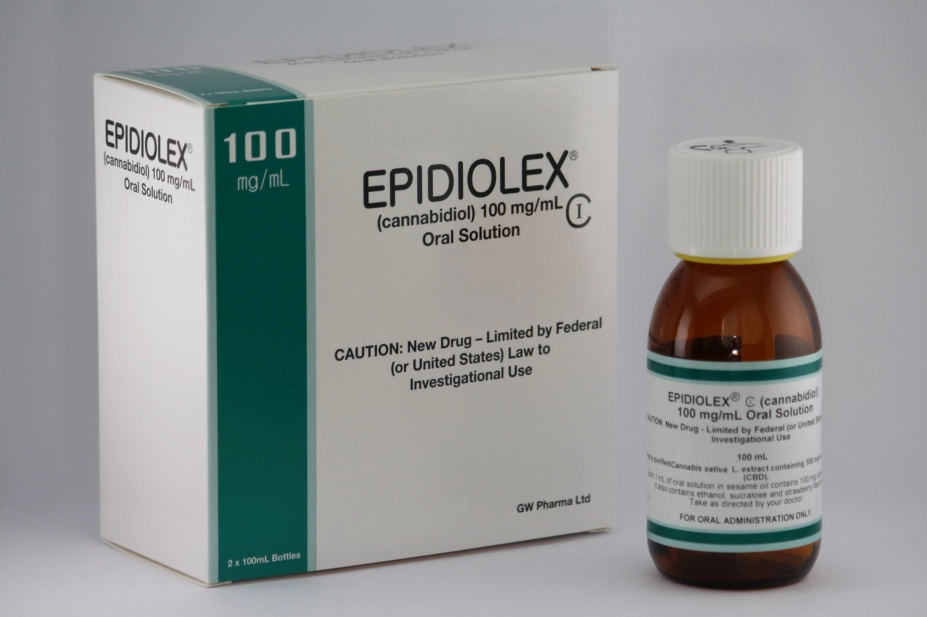
GW Pharmaceuticals
The National Institute for Health and Care Excellence (NICE) has recommended two cannabis-based medicinal products (CBMPs) for reimbursement under the NHS.
A statement issued by GW Pharmaceuticals, a UK-based manufacturer of CBMPs, on 11 November 2019 said NICE has recommended NHS England routinely reimburse healthcare professionals for prescribing Epidyolex (cannabidiol) and Sativex (delta-9-tetrahydrocannabinol) — both of which are produced by the company.
This marks the first time a cannabis-based medicine has been recommended by NICE for NHS reimbursement.
Epidyolex is a 100mg/mL oral solution of cannabidiol (CBD), which has been recommended for seizures associated with Lennox Gastaut syndrome or Dravet syndromein patients aged two years or over, to be used alongside clobazam.
Sativex is an oromucosal spray containing both CBD and tetrahydrocannabinol (THC), used for relief of spasticity associated with multiple sclerosis.
The recommendations come on the same day that the institute has published its final guidance on CBMPs.
The final guidance now recommends offering a four-week trial of a tetrahydrocannabinol and cannabidiol spray to patients with moderate-to-severe spasticity related to multiple sclerosis (MS) if other treatments have failed.
The initial draft guidance released for consultation in August 2019 had said patients with spasticity should not be offered CBMPs because “it is not a cost-effective treatment at its list price”.
However, the final guidance has now said that, following a four-week trial, patients should be continued on the treatment if they experience “at least a 20% reduction in spasticity-related symptoms”.
The guidance relating to CBMPs for other conditions remains unchanged from the draft version, with CBMPs still not being recommended for chronic pain.
NICE has reiterated that further research is needed into their clinical effectiveness and cost effectiveness in severe epilepsy.
Mike Barnes, a consultant neurologist and chair of the Medical Cannabis Clinicians’ Society, said the guidance was “still inappropriately obsessed with double-blind placebo-controlled trials” and showed “disregard for international evidence and for highly authoritative studies of the evidence, such as the National Academies report from [the United States]”.
He added that the guidance holds back the development of medical cannabis “by at least five years”.
However, Gino Martini, chief scientist at the Royal Pharmaceutical Society, said he welcomed the guidance.
“Pharmacists will be on the frontline of supplying CBMPs and can give advice to patients taking them as part of their treatment plan,” he said.
“It’s essential there is robust governance around prescribing and dispensing, and pharmacists have an important role to play in ensuring this is in place across health systems.”
The MS Society said that while it welcomes the decision to fund a cannabis-based treatment on the NHS in England, more must to be done to make medical cannabis available to everyone with the condition.
Genevieve Edwards, director of external affairs at the MS Society, said that the guidelines were “an important first step, but don’t go far enough”.
“No cannabis-based treatments have been recommended to treat pain — a common symptom of MS,” she added.
Chris Tovey, chief operating officer at GW Pharmaceuticals, said NICE’s decision to recommend Epidyolex and Sativex for reimbursement was “momentus”.
“This is proof that cannabis-based medicines can successfully go through extensive randomised placebo-controlled trials and a rigorous NICE evaluation process to reach patients,” he said.
- This article was amended on 6 December to clarify that NICE has recommended Epidyolex for NHS reimbursement for treatment of two rare forms of epilepsy


